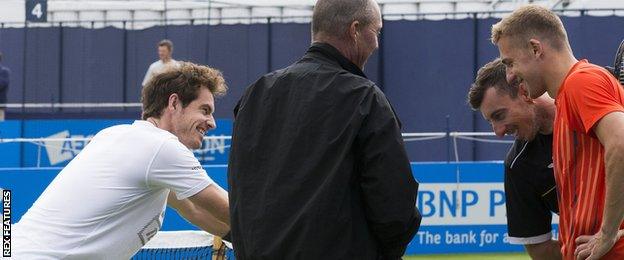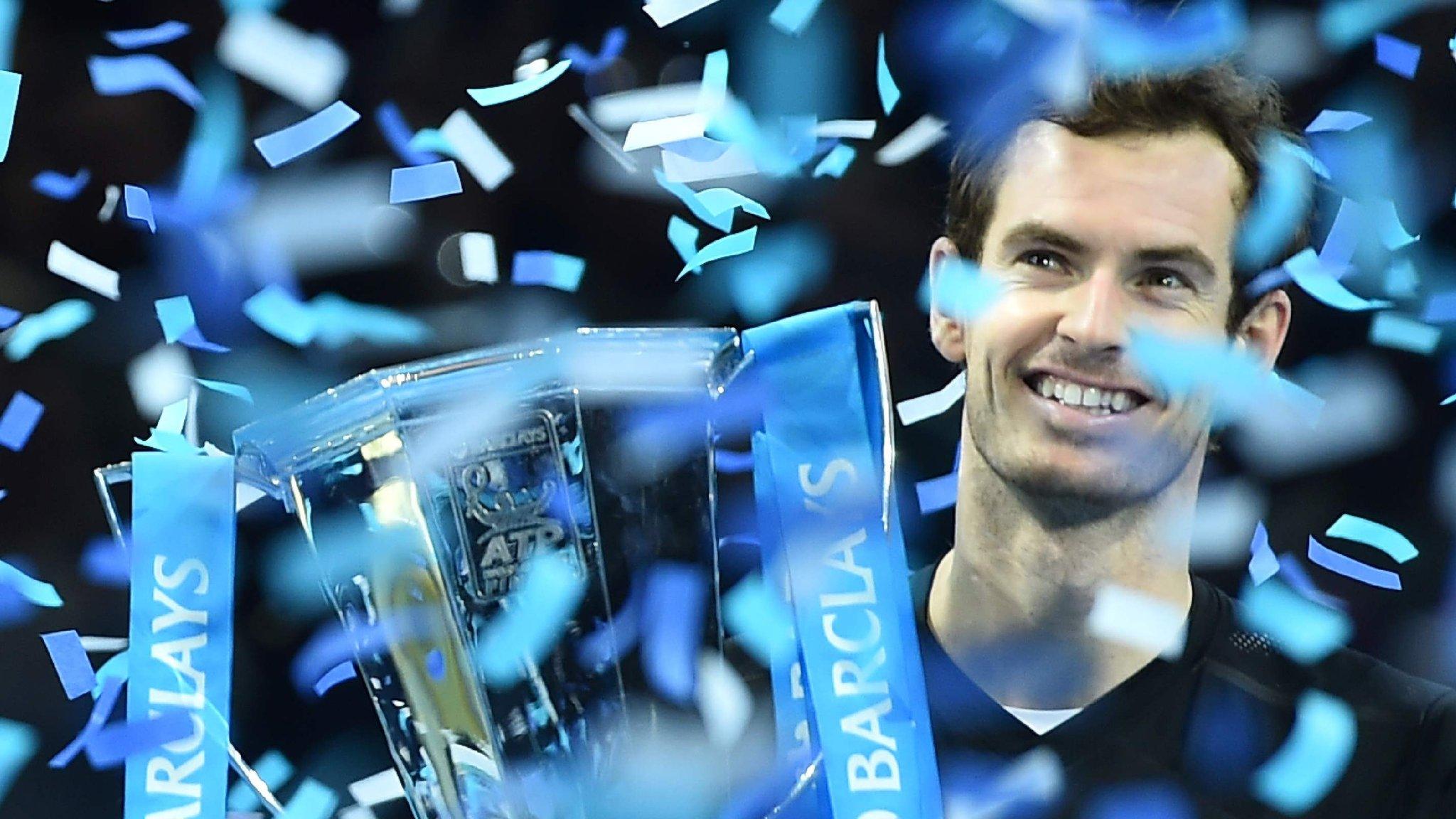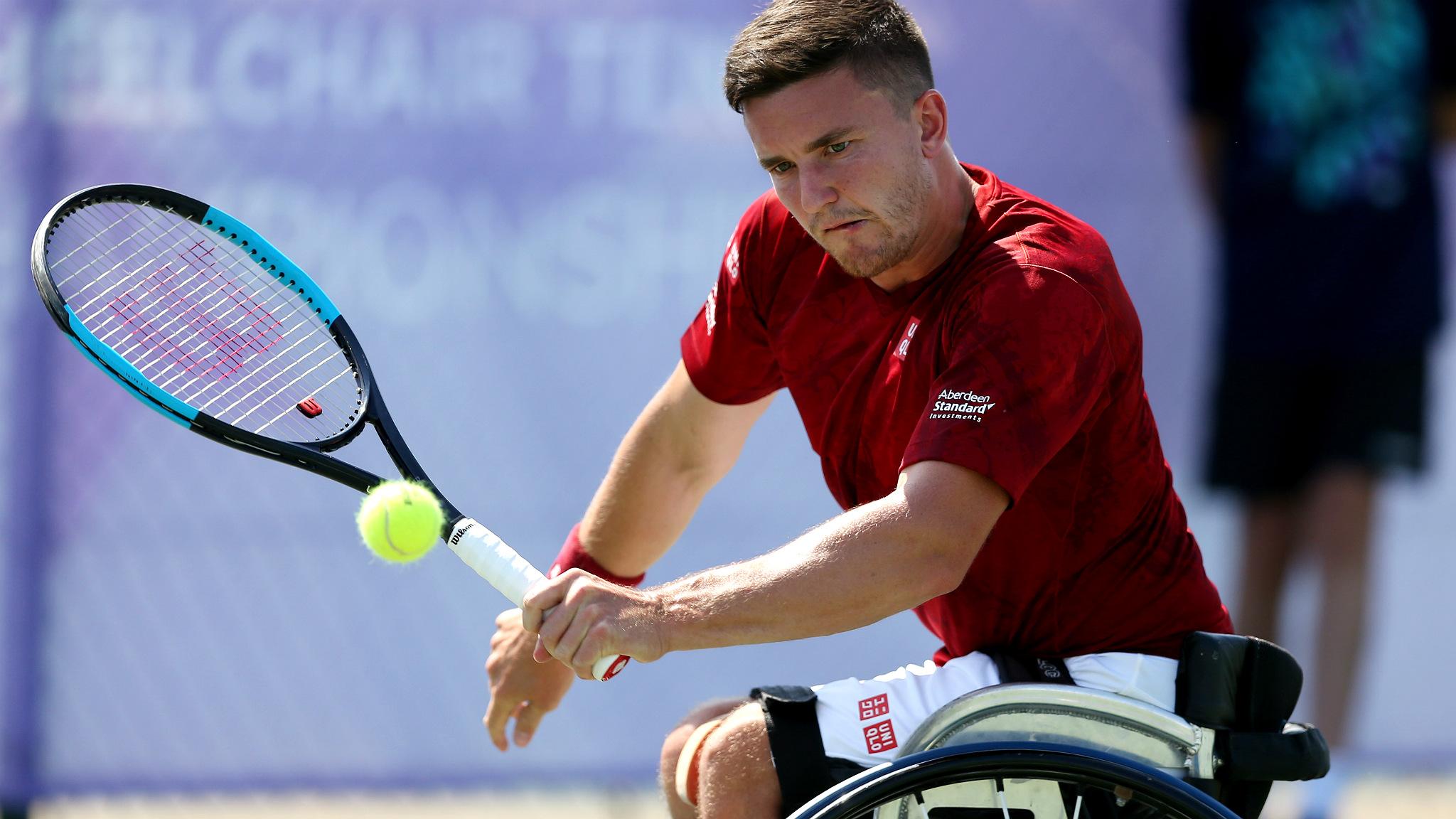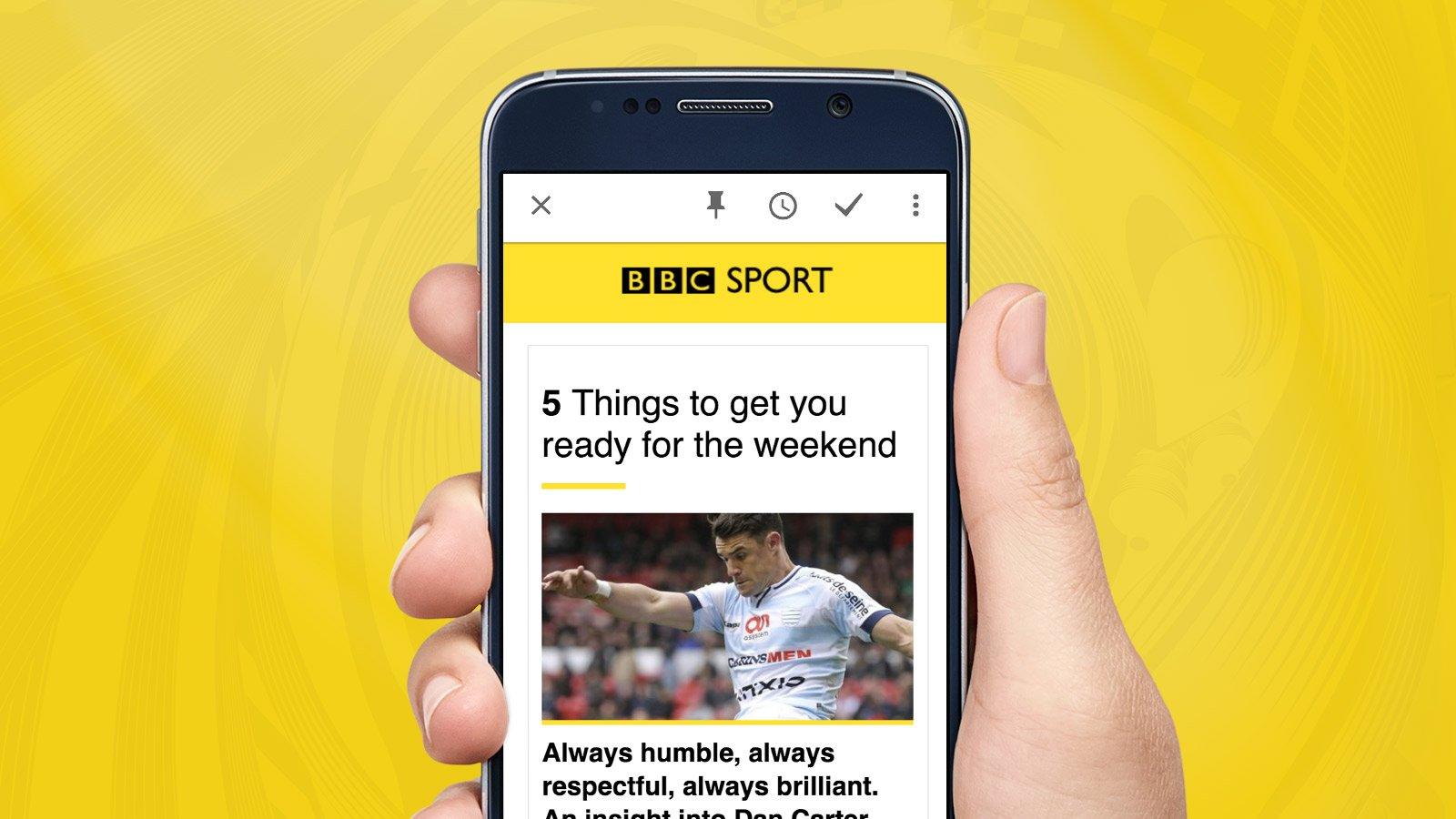Alex Ward: Wimbledon wildcard speaks about tennis' Futures tour
- Published
Ward on life in tennis' third tier
Wimbledon on the BBC |
|---|
Venue: All-England Club, London Dates: 27 June - 10 July |
Live: Follow on BBC TV, BBC Radio and online with further coverage across Red Button, Connected TVs and BBC Sport website. Click for more details |
The Royal Box. Strawberries and cream. British flag face-paint adorning sun-kissed skin. Wimbledon is the picture of a perfect tennis world.
We will hear so much from SW19 over the next two weeks about whether Novak Djokovic and Serena Williams can defend their titles, or whether Andy Murray can lift the men's singles trophy for the second time.
The prize money in 2016 ramps up to a staggering £28.1m, with a first-round loser in the singles tournament earning £30,000.
That may sound like a lot of money for a few hours' work, but for some players on the third-tier Futures tour, which samples the delights of Uzbekistan and Mozambique among others, that money is invaluable.
That is why wildcard places are so coveted. Northampton's Alex Ward, a man rather familiar to the Futures Tour, is one of those lucky enough to be chosen for one after 13 months during which he has risen more than 300 places to 244 in the world rankings.
"When I heard the news from (Great Britain's Davis Cup captain) Leon Smith I was a bit numb for a couple of hours because it's always been a dream of mine," Ward told BBC Look East.
"I personally think Wimbledon is the best tournament in the world, it's the pinnacle of tennis. It gives me an opportunity to win matches if I have a decent draw, to get good ranking points and good money which will help me play for a few more years at least."
Life on the Futures tour

Alex Ward (right) practiced with world number two Andy Murray and his coach Ivan Lendl at Queen's Club in the build-up to Wimbledon
The 26-year-old son of a tennis coach admits his life is "hectic", having already been to four continents in 2016, constantly sorting out his own flights, accommodation, travel to and from tournament venues, food, and some unforeseen expenses.
"I was playing in a tournament in Spain earlier this year and came to the event two days early, which isn't crazy early, and there was no tennis balls on site," he said.
"We had to find a sports shop, buy our own can of tennis balls to go back to the club and hit. Stuff like that is typical. I wouldn't say I've had unique experiences. Everybody on the Futures tour is in the same boat, stuff like this will be happening now."
Ward's career has skyrocketed since a move to Barcelona, funded in part by his family, last year. After winning two Futures titles, the British number seven now finds himself in the top 250 in the world having scrapped around the 300 and 400 mark for the past few years.
That has meant a move onto some second-tier Challenger Tour events, not that he will forget his experiences getting there in a hurry.
"You have to be ready to fight and scrap in matches because in Futures you're not playing on perfect courts," he said.
"Earlier this year in Tunisia, a clay tournament I won, a storm blew through the courts on one of the days and swept all the clay all away. I don't think they had any clay on site to replace it.
"On one of the days we pretty much played on the concrete underneath which meant it became a completely different tournament and because there had been a storm the day before we had to play two matches on that day."
Paying your way
The BBC will have coverage of Wimbledon 2016 across TV, radio, online and social media
Some people scoff when they hear how much people earn for a first-round defeat at Wimbledon.
But they forget the hours of practice, hundreds of tennis balls ruined and thousands of Air Miles accumulated put in during the build-up for those making a living in the lower levels of tennis.
"If you win a Futures title you're probably just covering your expenses for the week unless you can get accommodation for free," he said.
"If I'm covering everything for a week it will probably come to around €800 (£615) depending on where you are travelling to. If you lose in the first round, you earn €100 (£76) so you're going to be down a lot of money. You've got to fight and try to make enough money to eat and go to the next tournament.
"Over the last couple of years I've maxed out a couple of credit cards and in a bit of debt, but to get the right training that's what I've had to do. If you do it properly you'll probably make a loss to start with and hopefully you'll be good enough to start making money at some point."
Not giving up
Despite all this, Ward has not had the thought of packing it in just yet, and with the upcoming prize money from Wimbledon, could well be going for a few more years.
"I love playing tennis so I'll do anything to keep playing and have this lifestyle and great job. It's an individual sport so the highs are really high because it's all you. You're the only one out there so if you win a tournament it's all for you.
"But the low points are probably similar. In a team sport you experience it together but it you have a bad loss or tough week, you're on your own. It can be tough when you're in a random country in an average hotel with no money."
And as if his year could not get any better, Ward had the chance to practice with Murray at Queen's Club before the Scot won his fifth title there.
"It was a bit surreal when (Murray's coach) Ivan Lendl is asking me to hit one to his backhand, one to his forehand and setting up drills for me.
"I'm getting talked to by Lendl and hitting against Murray, it's a far cry from the Futures in Tunisia and Egypt."
Subscribe to the BBC Sport newsletter, external to get our pick of news, features and video sent to your inbox.
- Published8 November 2016

- Published17 June 2019

- Published13 May 2016

- Published19 July 2016
